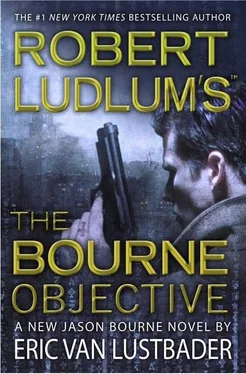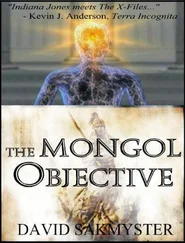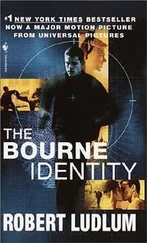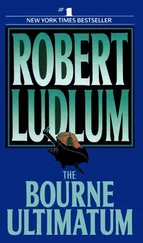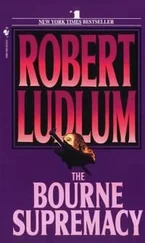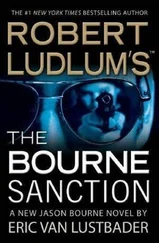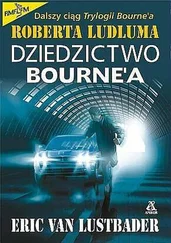For a moment Arkadin considered giving a false name, which he did almost by rote. Instead he’d said, “Leonid Danilovich Arkadin.”
The air had suddenly been perfumed with the tincture of history, a spicy, mysterious scent of rose and cedar. Much later he’d worked out what it was that drew him as well as shamed him. He felt like a student, too ignorant or truant to have learned his lessons. Around her he’d always felt his lack of formal education, like a nakedness. And yet, even from that first meeting, he sensed a use for her, that he could absorb what she had learned. He learned from her the value of knowledge, but part of him never forgave her for the way she made him feel, and he used her mercilessly, treated her cruelly, as he bound her ever closer to him.
This clarity came later, of course. At the moment all he felt was an onrush of anger and, without a word, he whirled away from her, stalking off to find Oserov, whose company, for the moment, seemed preferable to this creature’s.
But finding Oserov did nothing to allay his sudden discomfort, so he insisted on changing protocol, removing them from the Hermitage altogether. They walked out onto Millionnaya Street, where he found a café before their lips and cheeks grew too chapped from the icy wind.
Snow had begun to fall with an odd dry rustle like predators snuffling in the underbrush, and Arkadin would never forget how Tracy Atherton had materialized out of it. Her deerskin coat swayed about her ankles like icy surf.
In those days, directly after Dimitri Maslov had sent Oserov and Mischa Tarkanian to liberate him from the prison of his hometown of Nizhny Tagil, Oserov was his superior, a fact that Oserov lorded over him. Oserov was in the middle of lecturing him on how to properly kill a politician, the reason for their trip to St. Petersburg. This particular politician had stupidly aligned himself against Maslov, and so had to be eliminated as quickly and efficiently as possible. Arkadin knew this, and Oserov knew he knew it. Nevertheless, the shit gleefully drove home his points with mind-numbing repetitiveness, as if Arkadin were a backward and insolent five-year-old.
Not many people would have dared interrupt Oserov, but Tracy did. Entering the café, she spotted Arkadin, strode confidently up to their table, and said, “Why, hello, fancy meeting you here,” in her soft British accent.
Oserov, pausing in mid-rant, looked up at her with a glare that would turn most people to stone. Tracy merely widened her smile and, pulling up a chair from a nearby table, said, “You don’t mind if I join you, do you?” She sat down and ordered a coffee before either of them uttered a word.
The moment the waiter left, Oserov’s face darkened ominously. “Listen, I don’t know who you are or why you’re here, but we’re in the middle of important business.”
“I saw that,” Tracy said blandly, waving a hand. “Go ahead, don’t mind me.”
Oserov pushed his chair back with a teeth-grinding scrape. “Hey, fuck off, lady.”
“Calm down,” Arkadin began.
“And you, shut the fuck up.” Oserov stood, leaning over the table. “If you don’t leave now-right this fucking second-I’m going to throw you out on your pretty little ass.”
Tracy stared up at him without blinking. “There’s no need for that kind of language.”
“She’s right, Oserov. I’ll escort her-”
But just at that moment Tracy took hold of the end of Oserov’s tie, which was threatening to dip into her coffee, and Oserov lunged at her, grabbing at the collar of her coat and hauling her to her feet. Her silk shirt ripped, the violent action bringing them unwanted attention from the café’s patrons and staff. Their mission was supposed to be under the radar, and Oserov was ruining that.
Arkadin, on his feet, said softly, “Let her go.” When Oserov maintained his grip, he added, even more quietly, “Let her go, or I’ll knife you right here.”
Oserov looked down at the point of a switchblade that Arkadin had aimed at his liver. His face darkened further, and something malefic bloomed in his hard, glinting eyes.
“I won’t forget this,” he said in an eerie tone as he released her.
Since he was still staring into Tracy’s face it was unclear to whom Oserov was speaking, but Arkadin suspected he was addressing both of them. Before anything worse happened Arkadin came around the table and, taking Tracy by the elbow, walked her out of the café.
The snow was swirling down with singular intent, and almost immediately their hair and shoulders were coated with it.
“Well, that was interesting,” she said.
Arkadin, searching her face, could find no fear in it. “You’ve made a very bad enemy, I’m afraid.”
“Go back inside,” Tracy said, as if she hadn’t heard him. “Without your coat you’re liable to freeze to death.”
“I don’t think you understand-”
“Do you know Doma?”
He blinked. Did she never listen to what anyone said to her? But the tide she rode was taking him farther and farther from the known shore. “The restaurant on the Hermitage embankment? Everyone knows Doma.”
“Eight o’clock tonight.” She gave him one of her patented smiles and left him there in the snow, observed by the glowering Oserov.
The girl whom he’d mistaken for Tracy was long gone, but Arkadin could still make out the damp traces of her narrow footprints in the sand beyond the high-tide line. There were jellyfish in the water now, opalescent and glowing. In the distance a Mexican woman sang a sad ranchera from the speakers of a radio. The jellyfish seemed to be swaying to the music. Night was falling, a black sky studded with stars heading his way. Arkadin returned to the convent to light candles instead of switching on the electric lights, listen to sad rancheras instead of turning on the TV. Seemingly overnight Mexico had seeped into his blood.
I ’m beginning to understand why Arkadin and Oserov are mortal enemies, Bourne thought as he looked up from Perlis’s notebook. Hate is a powerful emotion, hate makes normally smart people stupid, or at least makes them less vigilant. Perhaps I’ve finally found Arkadin’s Achilles’ heel.
He’d read enough for the moment. Closing the lid on the safe-deposit box, he pocketed the book and rang the bell to indicate that he was finished. While on the surface it seemed odd that Perlis would use such an old-fashioned method to record what he obviously considered vital intelligence, on further consideration it made perfect sense. Electronic media were all too prone to hacking in so many forms that a handwritten copy was the answer. Kept in a vault, it was perfectly secure, and if the need arose it could be irrevocably destroyed with nothing but a match. These days going low-tech was often the best defense against computer hackers, who could infiltrate the most sophisticated electronic networks and retrieve even supposedly deleted files.
Diego Hererra pulled aside the curtain, took the metal box, returned it to its numbered niche, closed the door behind it, and the two men secured the box with their respective keys.
As they walked out of the vault Bourne said, “I need a favor.”
Diego glanced at him expectantly, but noncommittally.
“There is a man who has been following me. He’s in the bank, waiting for me to return.”
Now Diego smiled. “But of course. I can show you to the door used by customers who require, shall we say, a higher degree of discretion than is the norm.” They were almost at his office when a ripple of concern crossed his face. “Why is this man following you, may I ask?”
“I don’t know,” Bourne said, “though I seem to collect people like him like flies.”
Читать дальше
